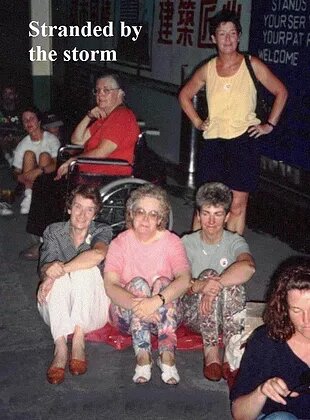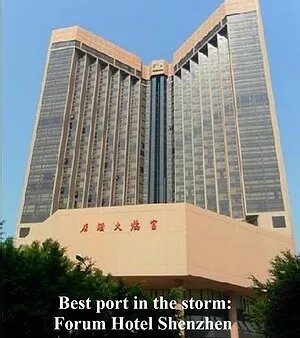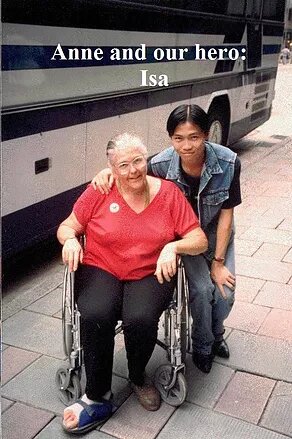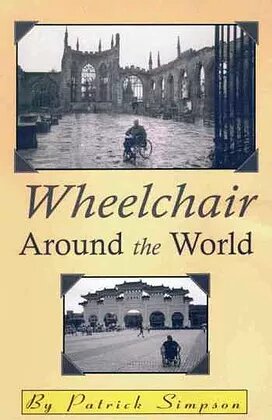WHEELCHAIR AROUND THE WORLD: SAMPLE PAGE
Chapter 9: One Night in the People’s Republic of China
Wednesday, 3 August 1994:
It was getting late, time to wrap up our guided day-trip of Guangzhou (historically Canton) and catch the train back to Hong Kong.
That’s when things started to go seriously wrong.
Isa, our travel guide, came to the rescue. “There’s been a big storm,” he said. “The railway has been blocked by a huge mudslide. Our train was just cancelled. Follow me, please. I’m going to get a bus. Please wait here.”
Isa was a slim, handsome, and very bright young Chinese man His blue denim vest and pants complemented his black hair, shirt and shoes, making him look almost military. He was plugged into the world with his cellular flip phone. Like a battlefield commander, he was authoritative and firm when he directed us, anticipating every obstacle and constantly in touch with headquarters. He always knew what to do and he did it.

It was after 11:00 p.m. when we got to the railway station at Shenzhen. Our intention was to get through customs, board the Kowloon-Canton Railway train, and exit stage left. The bus dropped us off nearby and we walked toward the huge immigration hall at the Lo Wu border crossing.
It was closed!
Even Isa looked shocked. Apparently we had arrived after the normal 11:00 p.m. closing time. The three uniformed immigration officials refused to let us through until they received further orders. They stood impassively underneath floodlights in front of the fifteen-foot-high glass doors, now chained and padlocked. It was a surrealistic scene.
Several tour groups – now distraught – began to mill about. One of their leaders, an American woman, stood on a box and began to shout.
“The higher-ups in Customs have ordered the border closed. These nice men (she pointed to the border guards) won’t ask them to change the order because it would mean they were questioning their superiors. We must all band together, folks. We have to show unity and strength in numbers.”
She asked one of the men to wheel Anne to the front of the crowd.
Isa, meanwhile, had been working his phone. He suddenly flipped it shut, beckoned to us and said, “Let’s go.” He began to lead us away from the gate and the crowd. “Please don’t go,” pleaded the American tour guide from her soapbox. “We have to stick together.” For a brief moment, I could see some in our group struggling within themselves over which way to turn, but in the end we all followed Isa. He was a born leader.
Isa had called Hong Kong and won approval for an overnight hotel stay – at company expense! At first he led us to a nearby Chinese hotel. It looked very run-down, the only real advantage being its closeness to the railway station. Isa didn’t like it. He could tell we didn’t either. Back to the flip-phone.


We soon found ourselves in the posh Forum Hotel Shenzhen, only a block away. This new, top-end hotel was as modern as anything in the Western world. It radiated luxury and had prices to match. The 541 air-conditioned rooms rented for just over US$100 each. Isa assigned us to several double rooms on the fourteenth floor.
Before long we had passed out in our cool, clean beds.
The next morning we woke up in Communist China. Isa had the hotel give us a wake-up call and by 6:30 A.M. we were seated at a complimentary Western-style buffet breakfast.
In short order we were on the train to Kowloon, normally less than an hour away. Then it was Hong Kong at last! — thanks to Isa, our tour guide and hero. Our room at the City Garden Hotel seemed to say “Welcome back to the free world.”
Nearly two million mainland Chinese crossed the border in 1993 to spend their money in Hong Kong. It was hard to believe that crossing the border could be so difficult!
